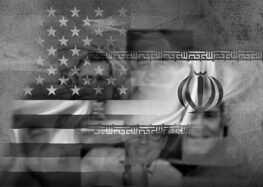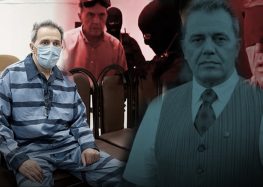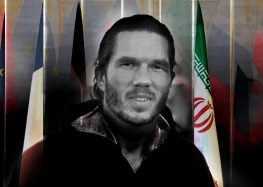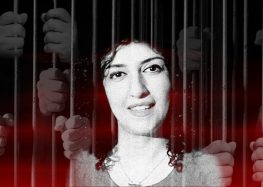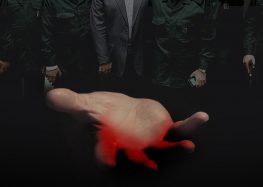Iran Upholds 10-Year Prison Sentences Against US Resident and Two Iranian-Americans
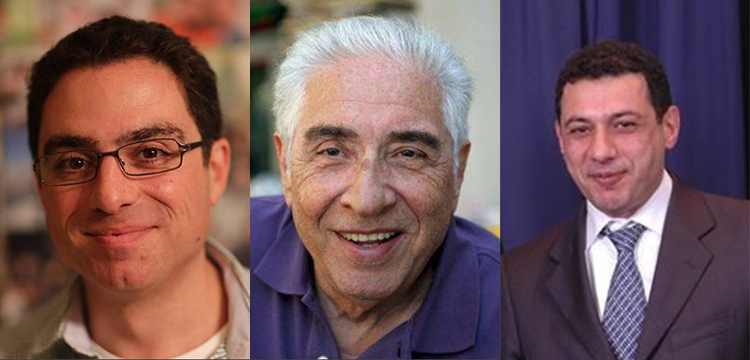
Iranian-American Businessman and His 81-Year-Old Father Remain Held on Unspecified Charges after Sham Prosecution That Lacked Due Process
Iran’s Appeals Court has upheld a 10-year prison sentence against US resident Nizar Zakka for unspecified espionage charges, his American lawyer said in an interview with the Center for Human Rights in Iran (CHRI) on August 28, 2017.
“The only thing we know is that the 10-year sentence and $4.5 million ransom was affirmed,” said Jason Poblete. “As usual the court refuses to share the written verdict with the lawyers; as you know there is no rule of law there.”
According to Poblete, the Lebanese-born Zakka sent a message from prison after learning of the Appeal Court’s decision calling on foreigners not to travel to Iran.
“If you’re traveling to Iran on business or pleasure, let my case be a lesson and a warning to others considering visits to Iran,” said Zakka. “I’m not the only one. If you value your freedom and are a foreigner, Iran is not safe for you. Don’t come here.
“I was invited to speak at an Internet ICT conference by Vice President Shahindokht Mowlaverdi. On my way to the airport I was kidnapped, locked up in Evin Prison, and falsely charged with espionage. I am innocent and the Iranians know it. There is no rule of law in Iran, and I am a victim of this, especially if you’re a foreigner. I will continue to speak out for freedom and justice.”
An information and communications technology consultant based in Washington, DC, Zakka was arrested in September 2015 while visiting Tehran to attend a conference on women and sustainable development. A year later the internet freedom advocate was sentenced to 10 years in prison and $4.2 million USD by Judge Abolqasem Salavati of Branch 15 of the Revolutionary Court for “espionage” charges which have not been made public.
“Mr. Zakka was subjected to a Star Chamber-like proceeding by certain people in the Iranian government who are more interested in using him, and others, as political pawns in international politics,” Poblete said in a statement on August 28. “It’s wrong and inhumane.”
He added: “In 1979, Iran held Americans hostages to exact political concessions from the United States. The Iranians are doing it again, but this time Iran is using the color of law to legitimize what amounts to hostage-taking so that Iran can, among other things, circumvent US and EU sanctions or use innocent civilians, such as Nizar, as leverage to negotiate flawed agreements such as the JCPOA nuclear deal with Iran.”
In late June 2017, Zakka went on a hunger strike in Tehran’s Evin Prison to protest his sentence and mistreatment by Iran’s judicial authorities. He ended his protest on July 27, 2017 after pleas from his family and a call by US Congress for his immediate release.
“In recent weeks he has been under intense torture and pressure,” said Poblete in an interview with CHRI on July 29. “I cannot get into the details, but the authorities tried to force him to sign a confession in Persian. He resisted and refused because he does not speak Persian.”
“These have been very difficult weeks,” continued Poblete. “But Nizar agreed to end his hunger strike after hearing his son’s voice and the support he received by members of the US House of Representatives.”
Meanwhile, Iranian-American businessman SiamakNamazi and his 81-year-old father Baquer have also lost their appeal against a 10-year prison sentence on undeclared “espionage” charges.
“I condemn in no uncertain terms the cruel and unjust decision of the Tehran Appeals Court,” their lawyer, Jared Genser, said on August 28. “The Namazis are innocent of the charges on which they were convicted and they are prisoners of conscience, detained in Iran because they are American citizens. For the Appeals Court to now uphold their convictions shows unequivocally that this was just more psychological torture by the Iranian government designed to create great hope in the Namazis and then utterly destroy them.”
Siamak Namazi, who headed the strategic planning division for Crescent Petroleum, an oil and gas company based in the United Arab Emirates, was arrested in October 2015. His father, a former UNICEF representative who served as governor of Iran’s oil-rich Khuzestan province under the US-backed shah, was arrested in February 2016, after going back to Iran to follow up on his son’s incarceration.

